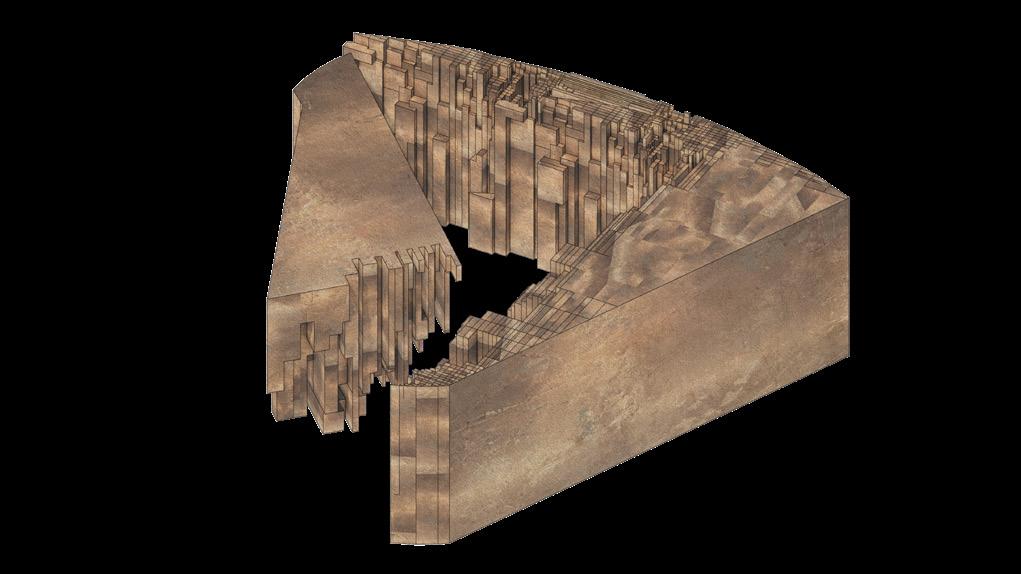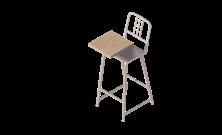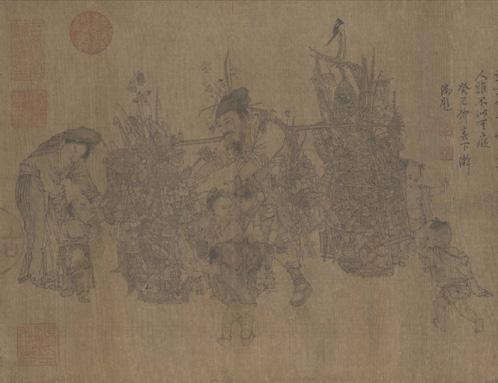2 0 2


2 0 2

“A room is only as good as how you feel in it.” -Philip Johnson
Looking back on my design studies, I am keenly aware of the importance of the integration of natural elements and multiculturalism in design. I am often inspired by nature, drawing inspiration from it and incorporating it with traditional Chinese culture, incorporating these elements into my designs to enhance the emotional experience and comfort of people in the space.
At the same time, my designs benefit from a multitude of interdisciplinary influences, whether it is painting, sculpture, photography or handicrafts, these different fields of study continue to enrich my aesthetics and perceptions, and broaden my understanding of design, in order to create spaces that resonate and resonate with emotions.
Because of this cross-disciplinary inclusiveness, I hope to learn and integrate more world cultures in the future, to further enrich my design language and make my designs more international and diverse, so that I can continue to innovate and make breakthroughs.

1.The Return to Primordial Unity
Five Elements Journey: A Meditative and Nature-Connected Space

2.Boundary Breaking - Integration
Spatial Experimentation of Ground Floor Overhead Express Stations

3.Dwelling in Song Aesthetics
From Poem to Painting, from Painting to Space

【
Five Elements Journey: A Meditative and NatureConnected Space
2024 Fall Context: Academic
Individual project

In a world where modern life disconnects us from nature, our design harnesses traditional Chinese elements of Bagua and the Five Elements to create a space for spiritual purification and reconnection with nature. Each element offers a path to healing and guidance, helping visitors find inner peace and balance.
Globally, in 2020, there were 53 million new cases of anxiety disorders and 76 million more cases of depression, according to an analysis by The Lancet. These problems particularly affect women and young people, who are more affected by epidemics and socio-economic pressures.
According to the World Health Organisation's (WHO) World Mental Health Report, global social stressors, including job insecurity, economic inequality and environmental problems, are significantly increasing the burden on people's mental health.
















The concept of Connectedness to Nature was first developed by psychologists Stephen Kaplan and Rachel Kaplan. They are key figures in Attention Restoration Theory (ART) and environmental psychology. In their research on the effects of the
Individuals
Nature





Fuxi, observing the sky and geography, interpreted the eight trigrams to reveal the order of nature; Nuwa, refining the five-colored stones to mend the sky, used the five elements to symbolize the cycle of biochemistry.
The Bagua evolves everything, the five elements build the world, and the two together constitute the laws of heaven and earth, reflecting the Chinese philosophical view of the unity of heaven and man.
Through the spatial logic of Bagua and the material attributes of the five elements, people are guided to return to nature, perceive the rhythm of the universe, and realize the harmonious coexistence of body, mind, and environment.


① Draw a circle.
② Draw a cross to mark the center of the circle.
⑤ Draw two small circles in the middle of the circles from step 3.
⑥ Erase the guide lines created in steps 2 and 4.
③ Draw two smaller circles in the top and bottom half of the large circle.
④ Draw horizontal lines through the center of the small circles.
⑦ Eraso the right and left sides of the small circles created in step 3.
⑧ Fill in one side with black and one small circle with black.
First Awareness of Polarity Pressure builds within Cosmic Egg
Egg cracks open,Creation begins.
3 Pure Ones regutabe.
Yuan Jing/QuShen separace 8 Tngram forces express.
Yin-Yang flows in 5 phase Creation Cycle(wu xing)
10 Celestial Stems regulate the 5 seasons,shape the warldy destiny a each human soul.
Prenatal human Jing/QuShen balanced within single androgenous soul.

12 Earthly Branches/Animals regulate 10,000 things (wan wu)
12 Human vital organ spirits regulate heart-mind
Jing/QuShen polarize into Mate & Female body. This inspires greater creativity to camplete our warldy destiny and spiritual selfrealization
01 Exploded axonometric analysis diagram















Finding yourself among a field of staggered columns, forming an abstract Taiji pattern. Light and shadow move through the structures, creating a rhythm in constant flux. The space feels solemn and sacred—as if you’ve stepped into a meditative field about cosmic order, where you sense the endless cycle of nature and power.


A balanced and guiding descending starting space
Approaching a transparent central structure, where steel reflects light in a quiet symmetry. A spiral staircase draws you gently downward, guiding you into a gradually unfolding narrative. You now stand at the threshold of the world of the Five Elements.





Steping into a space where structure dissolves and light scatters. Veils hang like mist, and an electronic sphere turns slowly at the center. There is no direction, no boundary—everything feels like a primordial universe, waiting to be sensed and stirred. You drift within it, silently confronting the unknown.


Steping into a space bathed in green light and shadows. Sunlight pours through slits above, like beams filtering through a forest canopy. The space stretches upward, its flowing lines wrapping around you. You feel yourself gently awaken, like a sprout rising in the embrace of wood.





Ledding into a descending space surrounded by firelight. Warm air swells and flows around you. The energy rises, then gradually converges inward—toward your core. Within this blazing enclosure, you begin to undergo a quiet reshaping, like metal refined in flame.


Earth’s Embrace
monumental volume expressing gravity, stillness, and reverence
Standing at the center of a massive “altar,” encircled by weighty stone forms. It feels as though you’re standing in the heart of the earth. Solid beneath your feet and vast on all sides, the space stirs a silent force from the land itself—evoking within you a profound sense of reverence and calm.





Entering a quiet space, where copper surfaces whisper the traces of time. Light gently brushes the evolving textures of metal. Here, you feel a gaze turning inward. This is a place for self-encounter—where in silence, you listen to time and begin to truly see yourself.


A fluid space at eye level, embodying the balance, resilience, and inclusiveness of water
Slowlying enter the water, level with its surface. All around is still, as soft light ripples upward from below. You neither float nor sink, but are gently held by water itself. In this inbetween state, you feel weightless—returning to a tender, primal condition of being.





A meditative chamber unifying previous elements through spatial stillness
Entering a quiet space enclosed in a perfect circle. A meditation platform rests at the center, under a soft shaft of light from above. It feels as though the entire space is breathing. Here, you stop, close your eyes, and feel all that you’ve experienced come together. In this moment of balance, healing begins.


Ascending a spiraling staircase, stone columns stretching down from the ceiling to your feet. Light follows you upward with each step. As you move through the forest of pillars, you return to the surface. Looking back, you carry echoes of all that came before—chaos and fire, flow and stillness. You walk away with them, transformed.


Spatial Experimentation of Ground Floor Overhead Express Stations
2024 Winter Context: Academic Individual project

This express station project centers on sustainability and technological empowerment, addressing issues of spatial constraints, functional limitations, and environmental disconnection. By integrating resource circulation and advanced technologies, it transforms traditional logistics nodes into multifunctional resource hubs, enhancing operational efficiency, user experience, and promoting sustainable development.
200%-300%, and some colleges and universities received more than 50,000 pieces in a single day (data sources: Ministry of Commerce, Jingdong (Source: Ministry of Commerce, Jingdong, Raiding Bird Post Report). However, the existing campus post stations generally have problems such as insufficient space and chaotic flow lines, which are particularly prominent during peak periods. Optimizing the design of express post stations to improve service efficiency and user experience has become a top priority for the transformation of university logistics systems.

This courier station is located on the west side of Shandong Academy of Arts and Crafts in University City, Changqing District, Jinan City, Shandong Province, near the west gate. The off-campus surroundings include Shandong Women's College to the west, Shandong Normal University to the south and Beidashan to the north. The on-campus surroundings include















S (Strengths):
-Located at the west gate of the school, close to dormitories, sports facilities, and main roads, with high traffic flow and high frequency of use.
-The surrounding facilities are complete, convenient for users to pick up courier and takeaway.
-Convenient traffic on the main road, easy for logistics vehicles to enter and exit.
-Advantages of the university environment foundation: the school has a unified management mechanism, the facilities have the possibility of updating and optimising, which is more suitable for design upgrading and long-term planning.

W (disadvantages):
-Space is more limited (the site is about 26 by 12 metres), prone to congestion during peak courier periods.
-Confusion of flow lines: the crossing of movement lines of people and logistics may cause inconvenience and reduce efficiency.
-The current area is single-function, without considering the user's pickup, rest or buffer experience, such as pickup waiting area is missing, resulting in people lingering in the logistics area leading to congestion.
-Confusing zoning design and traditional storage systems that are difficult to cope with large-scale parcel flow.
-Inadequate dynamic management: lack of advance planning for peak parcel surges can lead to chaos and inefficiency.
-Environmental homogenisation: no design features in the space, weak association with school culture, difficult to create a sense of belonging or memory points for users.




O (Opportunity):
-There is a clear trend of growth in the courier business, providing a demand base for optimised design.
-Integration of intelligent systems (e.g. electronic lockers or dynamic reminders for
and efficiency.
-Designs can incorporate green elements, utilising solar power, green walls or sustainable materials, in line with modern environmental trends and increasing campus image identity.
-Multi-functional design, the space is not only a courier service centre, but also





































































































【
From Poem to Painting, from Painting to Space 03
2025 Spring
Context: Academic Individual project

This project centers on Song Dynasty aesthetics, transforming the essence of poetry and painting into spatial experiences. By translating poetic imagery into painting, and then into space, it creates a minimalist yet profound environment, allowing visitors to experience the seamless blend of poetry, painting, and nature.

Tao Yuanming (365-427 CE), Jin dynasty writer and poet
A Chinese scholar-officer turned "scholar-farmer", hailed as the father of pastoral poetry. He resigned as a magistrate at 41, protesting bureaucratic corruption, and embraced rural life, writing poems that transformed farming into a metaphor for freedom.
His prose < Peach Blossom Spring > envisioned a harmonious utopia—a secluded society untouched by war and politics, reflecting a 1,600-year-old Chinese ideal of peace.
Blending Confucian social duty with Daoist love for nature, he became an icon of spiritual independence, resonating with global figures like Thoreau in their critique of materialism.
Gui Yuan Tian Ju (I)
am not a young man, but by nature I love mountains and hills.
I fell into the dust net by mistake and have been gone for thirty years.
The birds love the old forest and the fish miss the old pond. have opened the southern field and returned to the garden.
The square house is more than ten acres, with eight or nine grass houses.
Elm and willow shade the rear eaves, peach and plum trees in front of the hall.
Distant villages and smoke in the market place.
Dogs barking in the deep lanes and chickens crowing in the mulberry trees.
There is no dust in the house or the courtyard, and there is leisure in the empty room.
I have been in a cage for a long time, but I have returned to nature.













Song Dynasty paintings are an important part of Chinese art history, known for their high level of artistic achievement and unique aesthetic style.
With its rich and varied subjects, exquisite techniques, profound cultural heritage and unique creative style, Song Dynasty painting not only reflected the prosperity of the society and the spiritual pursuit of the scholars at that time, but also laid a solid foundation for the development of Chinese painting in the later generations. It is not only a true record of nature and life, but also a high degree of condensation of the literati's inner feelings and philosophical reflections, showing a kind of artistic charm that transcends the object and has a far-reaching meaning.
This is precisely the reason why Song Dynasty paintings have an irreplaceable position in the history of Chinese and even world art.

Through the three-part mood of Zao Chun Tu, the space is divided into three parts.
The first part creates a spatial atmosphere of confusion and distortion through distorted lines. The second section embodies a sense of tranquility and openness through gentle transitions. The third section extends upwards to create a spatial effect of looking up.














03 Exploded axonometric analysis diagram

6.Up
7.Path
8.Observation Deck
The building takes the ‘Three Distant Methods’ of Guo Xi's Zao Chun Tu ’ of the Northern Song Dynasty as the core of spatial translation.
Through the fusion of poetic and architectural language, the building constructs a triple spatial sequence of ‘ foreground ’, ‘ middle ’ and ‘ back ’.
少无适俗韵,性本爱丘山。
误落尘网中,一去三十年。
I am not a young man, but by nature I love mountains and hills. I fell into the dust net by mistake and have been gone for thirty years.


Stepping into this space, in front of us are high and low rockery mountains, with light and shadow coming through the cracks of the stones, as if exploring the way ahead in the mist. The sharpness of the rocks echoes the brushstrokes of Song paintings, creating an atmosphere of confusion and disorientation. As the footsteps move forward, the space opens up and gradually transitions to the tranquility of a homecoming.





The birds love the old forest and the fish miss the old pond. I have opened the southern field and returned to the garden.
In this space, the wooden structural frame abstractly translates the imagery of the square house and the straw house. A meandering path runs through the space, each step bringing a different view, as if exploring the harmony between nature and space in a change of scenery.





The square house is more than ten acres, with eight or nine grass houses. Elm and willow shade the rear eaves, peach and plum trees in front of the hall.
Walking into this open space, you are greeted by a patchwork of wooden structures that blend in with the natural landscape. The sunlight pours through the wooden lattice on the ground, creating an atmosphere of tranquillity and comfort. Every step takes you deeper into this natural embrace.





Distant villages and smoke in the market place. Dogs barking in the deep lanes and chickens crowing in the mulberry trees.
Passing through the layers of space, he eventually reached the pavilion at the top. Here, the view of the surroundings opens up to the fullest. The hollowed-out design of Taihu Lake stone blends in with nature, presenting a back-to-basics mood and letting people feel the harmonious symbiosis with nature.


户庭无尘杂,虚室有余闲。
久在樊笼里,复得返自然。
There is no dust in the house or the courtyard, and there is leisure in the empty room. I have been in a cage for a long time, but I have returned to nature.





The work utilizes three materials: cotton linen, stone and mirror. The taut lines of the cotton linen simulate the contours of the mountains, displaying the decisiveness and strength of a brushstroke; the rough texture of the stone corresponds to the thickness of the soil; and the reflection of the mirror represents the flow of the water and the shadow of the light.







The work is inspired by traditional Chinese garden walkways. The work sets up a double-layered inner and outer frame within the original specific frame, and extends the walkway out of the frame, breaking the boundary of the frame to form a coherent and layered spatial experience.


















